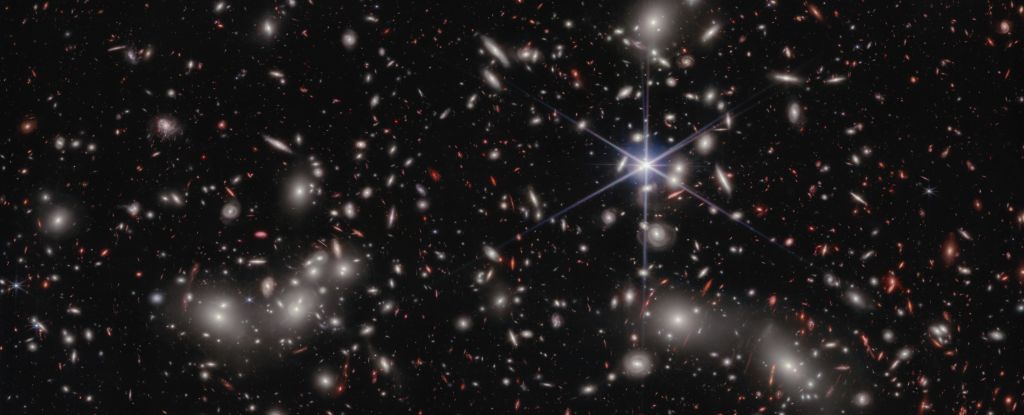
According to data from the Hubble and James Webb Space Telescopes, the origins of the free-flying photons in the early cosmic dawn were small dwarf galaxies that flared to life, clearing the fog of murky hydrogen that filled intergalactic space.
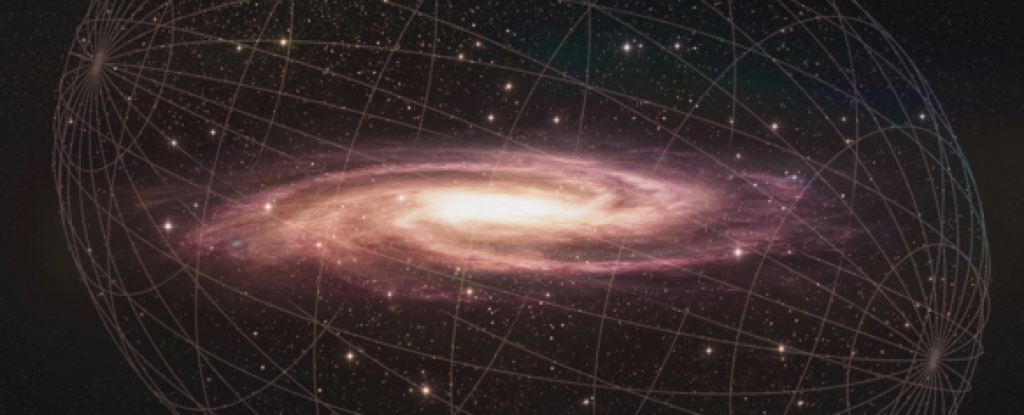
The two new satellites, named Virgo III and Sextans II, were discovered in a region of space already crowded with more dwarf galaxies than models of dark matter predict.
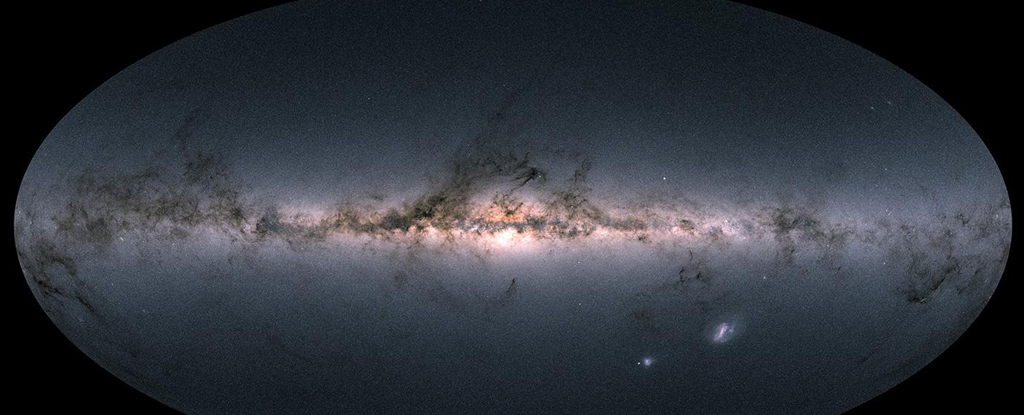
The Milky Way is only as massive as it is because of collisions and mergers with other galaxies.
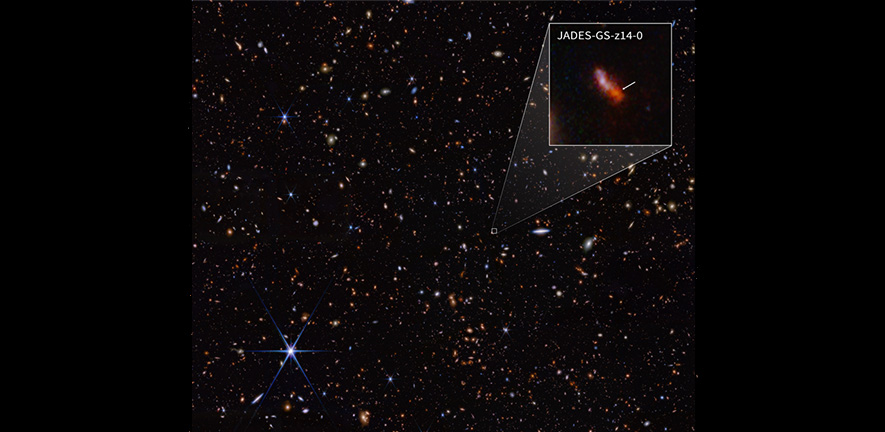
The two earliest and most distant galaxies yet confirmed, dating back to only 300 million years after the Big Bang, have been discovered using NASA's James Webb Space Telescope.
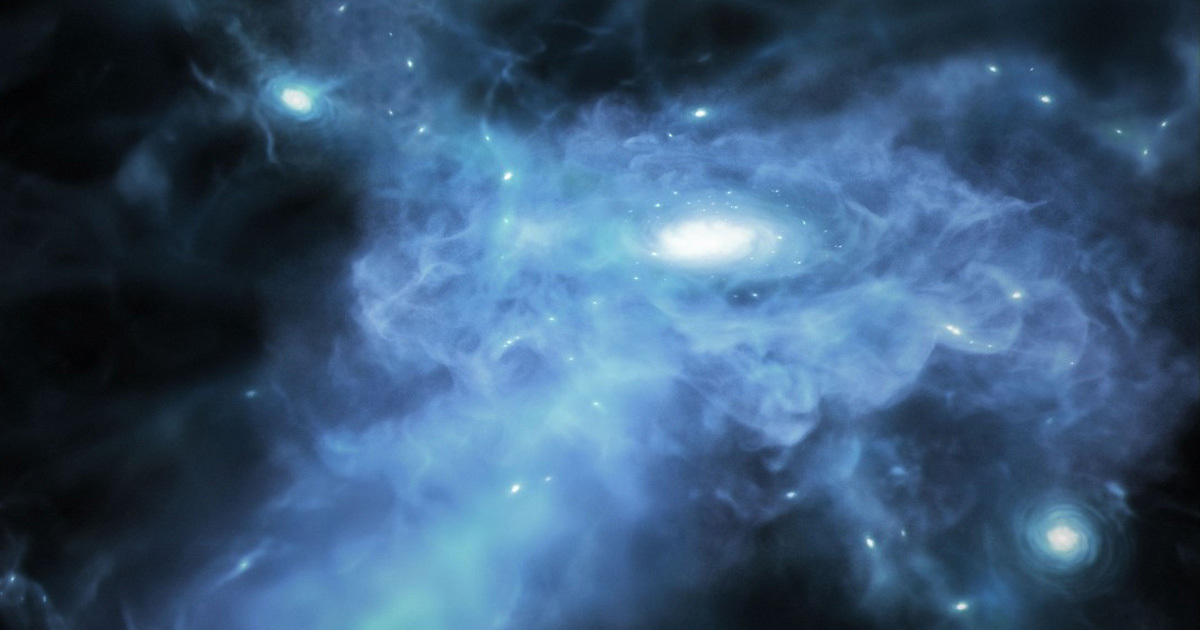
Using the James Webb Space Telescope, researchers observed the birth of some of the youngest galaxies ever witnessed.

MeerKAT telescope has already achieved some great results, from detecting giant radio galaxies to studying the centre of our own galaxy, the Milky Way.

Towards the center of the galaxy, two streams of stars nearly as old as the Universe have been discovered circling the heart of the Milky Way. These two streams have been named Shiva and Shakti.

An international team of scientists led by astronomers from Tartu Observatory of the University of Tartu has discovered many superclusters in the universe, with the most prominent among them named the 'Einasto Supercluster'.

According to data from the Hubble and James Webb Space Telescopes, the origins of the free-flying photons in the early cosmic dawn were small dwarf galaxies that flared to life, clearing the fog of murky hydrogen that filled intergalactic space.

NASA's new space telescope spotted a 13 billion-year-old galaxy that is much too complex to exist that early in the Universe.

The gigantic galaxies we see in the Universe today, including our own Milky Way galaxy, started out far smaller.

A few years ago, astronomers uncovered one of the Milky Way's greatest secrets: an enormous, wave-shaped chain of gaseous clouds in our sun's backyard, giving birth to clusters of stars along the spiral arm of the our galaxy.

The beginning of the Universe has always been something of a chicken-and-egg problem. Did stars and galaxies form first, with black holes slowly coalescing in their midst? Or did black holes appear before the first galaxies?

It’s oh-so-easy to be absolutely mesmerized by these spiral galaxies. Follow their clearly defined arms, which are brimming with stars, to their centers, where there may be old star clusters and – sometimes – active supermassive black holes.

To this point, J0613+52 is unlike any other galaxy discovered in the universe. What we do know is that it’s an incredibly gas rich galaxy and its not demonstrating any star formation.